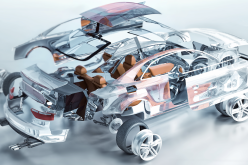Wearing the right Danner shoes during a working day rhyme with unparalleled comfort.
Injected EVA-Type Polymer Plastic Material
The material they are made is seen as the number one reason to choose professional shoes over leather. Leather shoes promote the retention and spread of bacteria and, therefore, contamination of the environment is hazardous in the early childhood sector. Unlike models made of injected closed cell polymers, which are characterized by the opposite effect, they prevent the proliferation of bacteria.
Sometimes the advantages of closed-cell materials are added to the fact that they can withstand higher wash temperatures for complete disinfection. They are also called “autoclavable shoes.” This is the case with several models applicable to high-quality polymers, which gives them more excellent safety and security.
Personal Protection In Medical Settings And Nurseries
Professional shoes used in the workplace are considered PPE – Personal Protective Equipment. PPE is specially designed to protect users against injury and potential contamination in a professional context to reduce the risks exposed to users. Professional shoes are PPE and are designed for the protection and comfort of their users. By their characteristics, they also protect people in the natural environment.
Daily Maintenance
Because they are produced from closed cell materials, professional shoes are easy to clean and very hygienic. Some models can be machine washed up to 90⁰ and up to 134⁰ in an autoclave, depending on the polymer in which they are produced. Frequent cleaning at high temperatures is recommended.
The Importance Of Hygiene In Nurseries
To Prevent The Spread Of Bacteria.
Maintaining the cleanliness and hygiene of a childcare facility is vital for their safety and health, and well-being. Heavily touched surfaces and shared objects can be massive sources of germs and promote the spread of infections. Most of the time, child care facilities are full of many things that help spread germs.
Toys, bedding, kitchen utensils, clotheslines, and other dirty surfaces like counters, elevator buttons, computer keyboards, and doorknobs can carry and spread germs and bacteria. These items and surfaces can easily be contaminated with germs, bacteria, and viruses that can quickly be passed from child to child. This implies that regular and adequate cleaning should always be a priority in any childcare setting.
Infections spread so quickly in child care settings because young children have innated behavioral habits such as lack of good personal hygiene, the need for people-to-people contact, and increased curiosity. All of these factors, along with immature physical activity, can contribute significantly to the spread of germs and infections.









